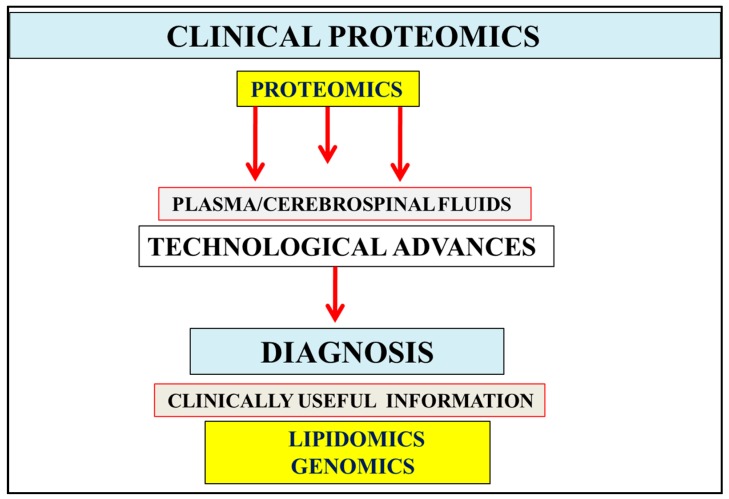Figure 1.
In body fluids such as the urine, plasma, and cerebrospinal fluids, the abundance of proteins has become of importance in the diagnosis of various chronic diseases including Alzheimer’s disease. Testing of these fluids involves biological variation or differences in the sample along with inter- and intra-assay variability that may influence proteomics results. Measurement and data analysis of fluid proteomics can be improved by comparison with genomic and lipidomic data. Technological advances in Alzheimer’s disease (AD) allow interpretation of clinical proteomics, lipidomic, and genomic data that may assist in the development of new protein biomarkers with relevance to the reversal of chronic disease and the diagnosis of AD.

